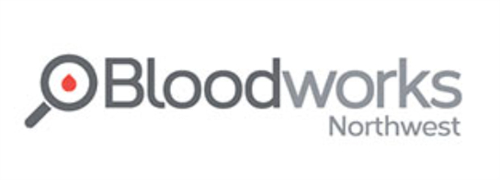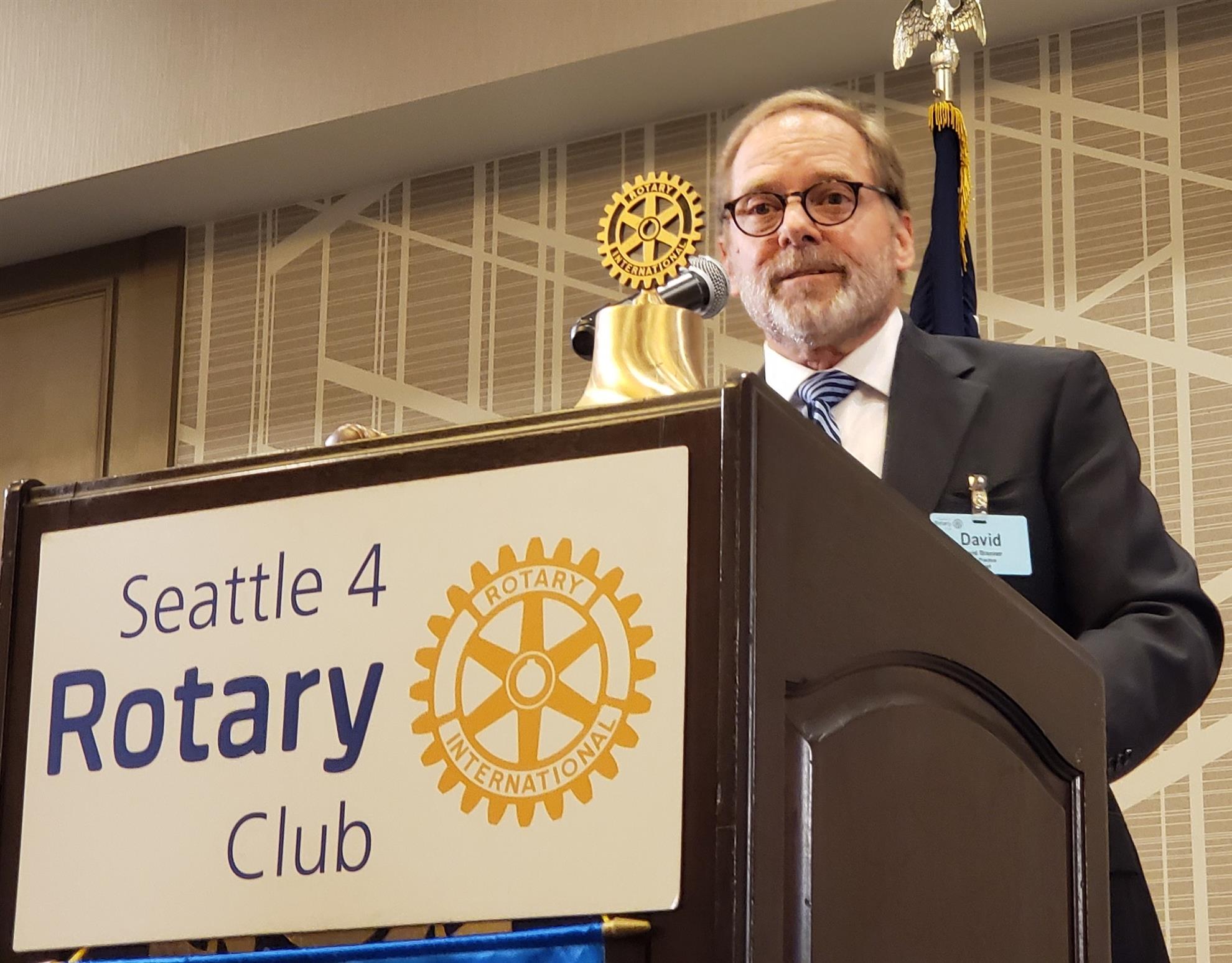 By Pete DeLaunay
By Pete DeLaunayThere is no denying how artificial intelligence or AI is growing at a rapid clip. It is being developed by scientists and data analysts with no oversight to protect privacy and prevent abuse, particularly among vulnerable populations. Rotarians learned about AI and the ominous implications of facial surveillance from a panel led by fellow Rotarian, attorney, and board member of an emerging organization called AI and Faith (www.aiandfaith.org), David Brenner. The day’s program was a discussion of this technology and its potential abuses if not used properly, monitored, and vigorously regulated.
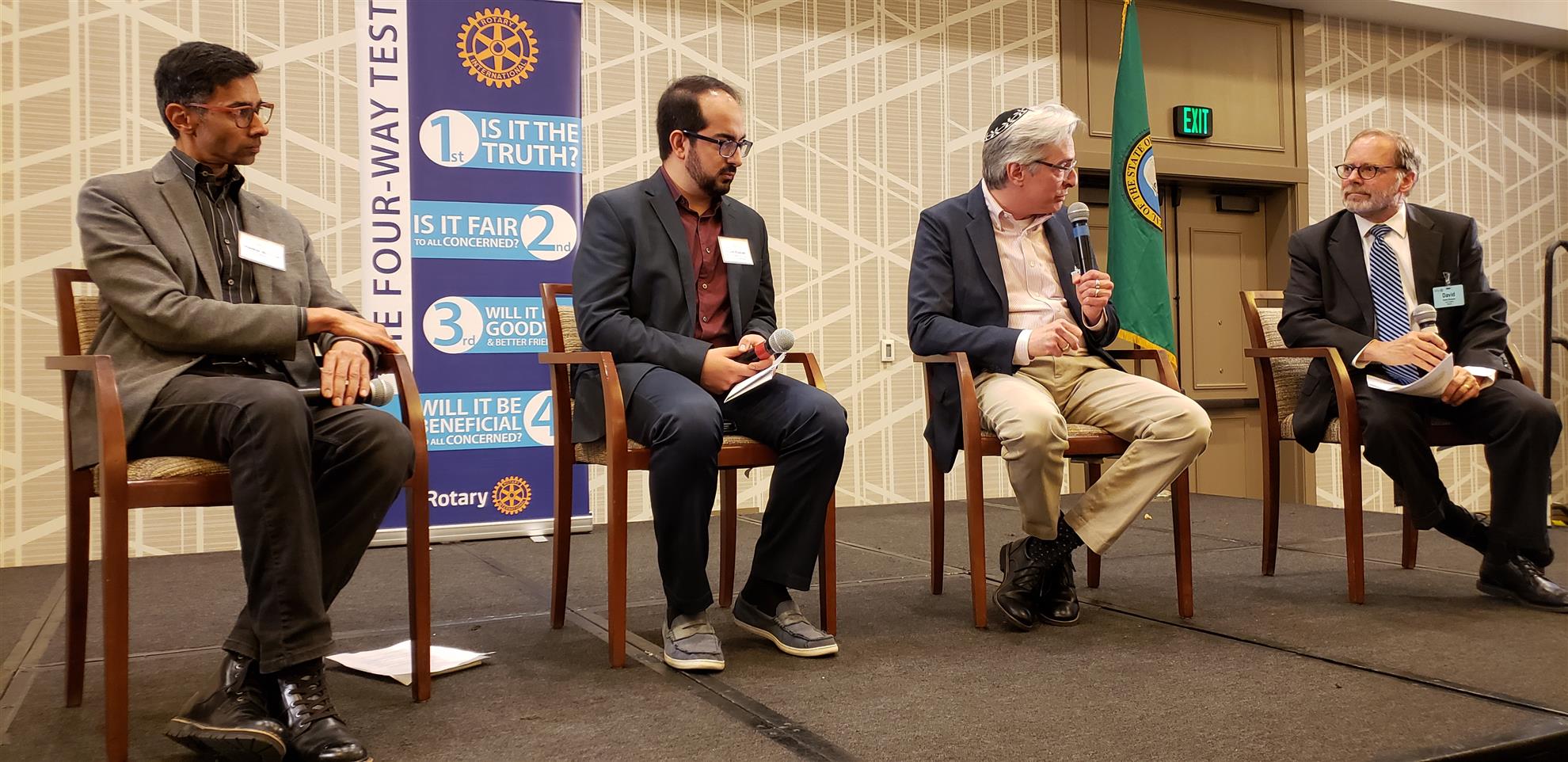 The panel was made up of Shankar Narayan, ACLU Technology and Liberty Project; Masih Fouladi, Executive Director, Council on American-Islamic Relations of Washington; and fellow Rotarian Rabbi Daniel Weiner, Temple De Hirsch Sinai. Each panelist offered their view of looming facial recognition technology and how it is being used and misused to suppress individual liberties.
The panel was made up of Shankar Narayan, ACLU Technology and Liberty Project; Masih Fouladi, Executive Director, Council on American-Islamic Relations of Washington; and fellow Rotarian Rabbi Daniel Weiner, Temple De Hirsch Sinai. Each panelist offered their view of looming facial recognition technology and how it is being used and misused to suppress individual liberties.Shankar Narayan described how police agencies in China are using goggles tied to facial recognition software to suppress religious expression among the Muslim population there. His remarks provided some framing and context for the evolution of technology that, he argued, is “never neutral” as a data scientist determines what to include and not to include in facial recognition software algorithms.
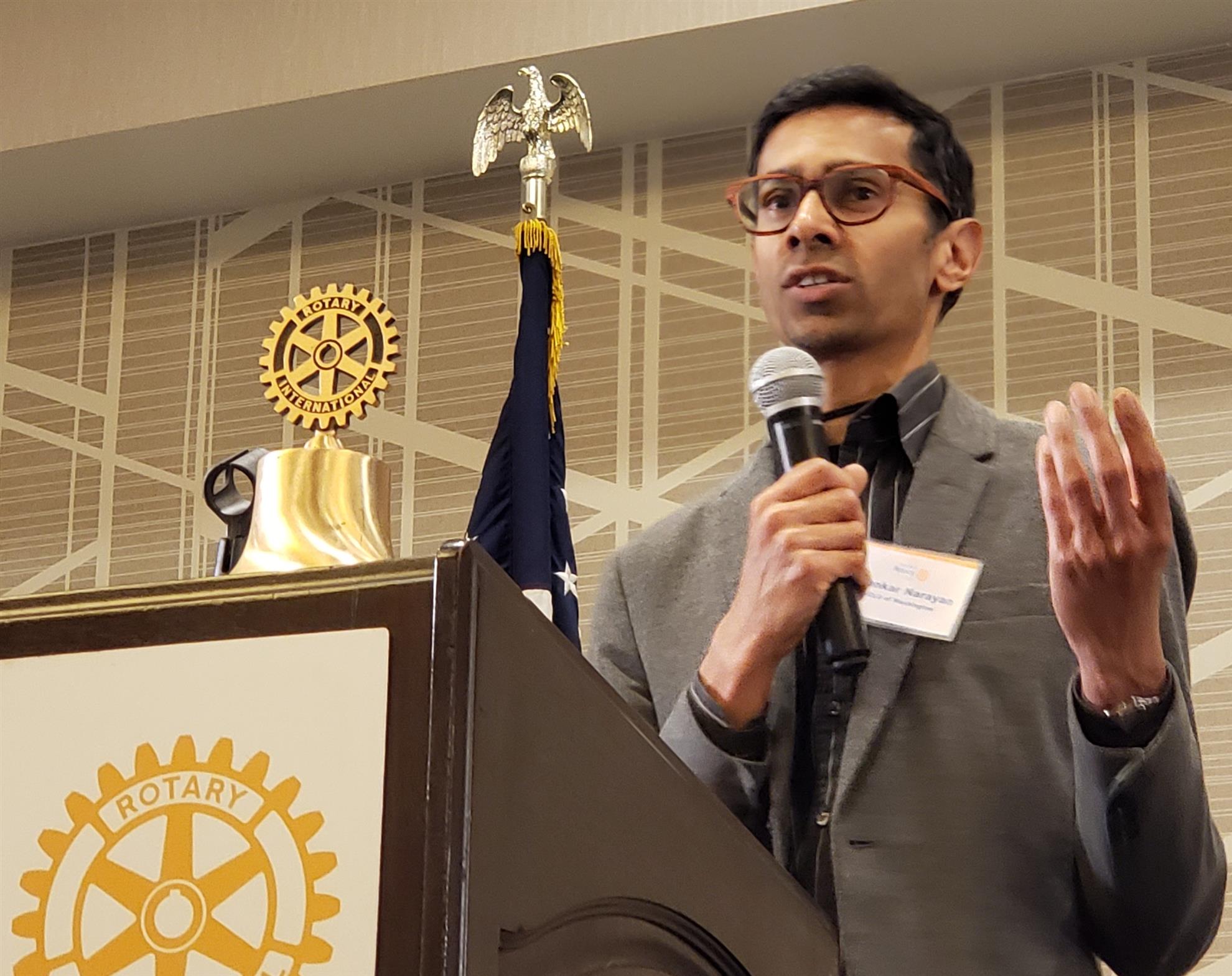 “Surveillance technology has a long history of racial profiling beginning with Japanese internments during WWII.” He quoted a Japanese American who was interred, “My face is my crime.” “It persists to the present day African American and Muslim communities,” he said. “Constitutional safeguards have failed to keep communities safe.” As face surveillance becomes the norm, questions about bias continue to mount. He posed the question, “Is it compatible with our democracy?” His research on AI facial recognition algorithm functionality suggests that bias creeps in when correlation becomes causation…in other words, would an algorism prompt a police officer to draw a gun? Bias studies have shown that face surveillance is not accurate.
“Surveillance technology has a long history of racial profiling beginning with Japanese internments during WWII.” He quoted a Japanese American who was interred, “My face is my crime.” “It persists to the present day African American and Muslim communities,” he said. “Constitutional safeguards have failed to keep communities safe.” As face surveillance becomes the norm, questions about bias continue to mount. He posed the question, “Is it compatible with our democracy?” His research on AI facial recognition algorithm functionality suggests that bias creeps in when correlation becomes causation…in other words, would an algorism prompt a police officer to draw a gun? Bias studies have shown that face surveillance is not accurate.“Policymakers and the manufacturers of technology deliberately avoid thoughtful conversation about the implications of face surveillance on ethics, religion, the arts, and other areas,” the ACLU lawyer said.
“Organizations must educate themselves about this technology and step up to regulate them.”
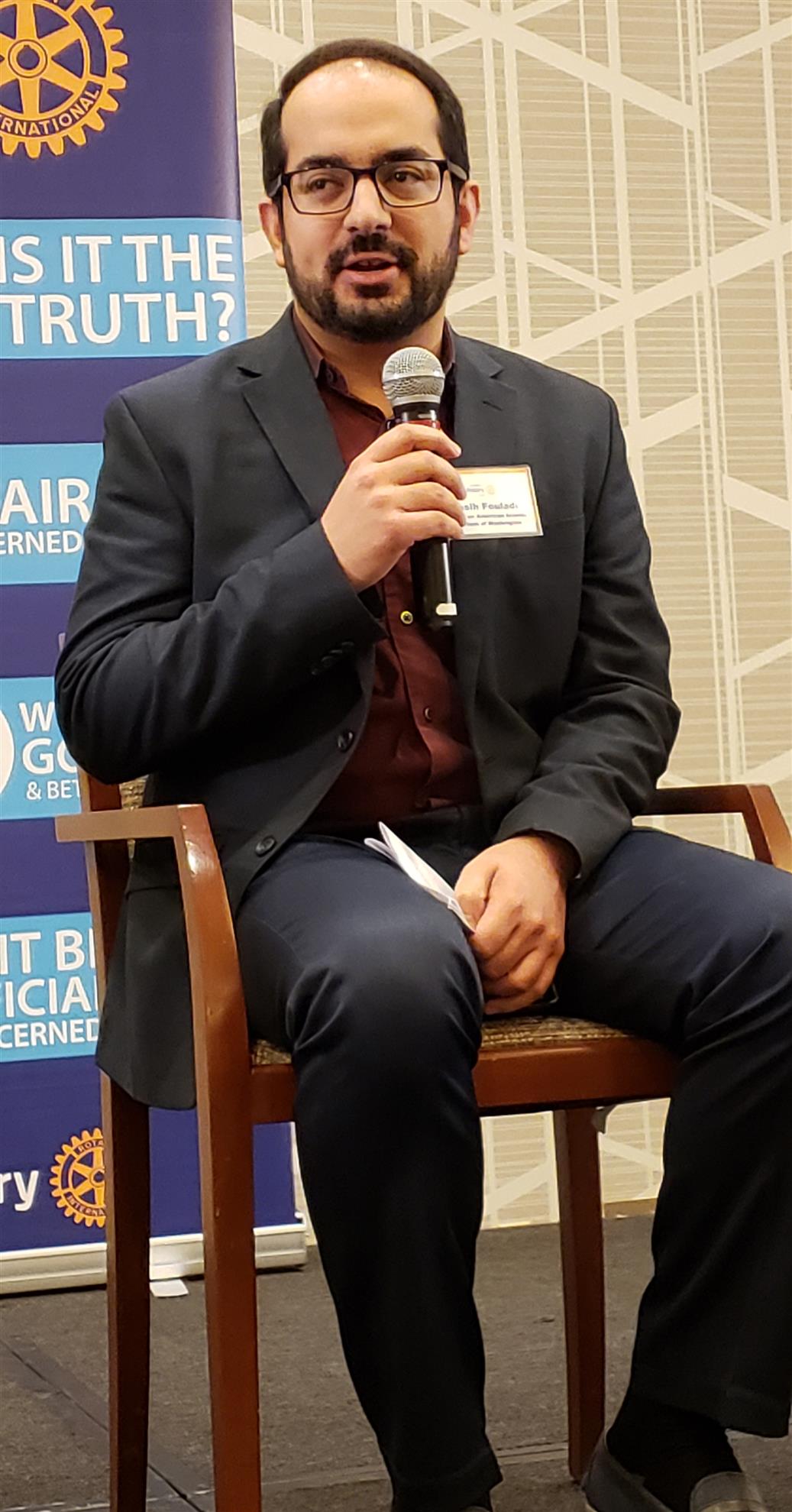 San Francisco recently banned facial surveillance with an ordinance that now requires public review before it can be applied by police or anyone else. Congress is also considering regulation to help create a “floor” so they can engage in the process; not allowing technology companies to write the rules of the road that must start with our values, accountability, and transparency.
San Francisco recently banned facial surveillance with an ordinance that now requires public review before it can be applied by police or anyone else. Congress is also considering regulation to help create a “floor” so they can engage in the process; not allowing technology companies to write the rules of the road that must start with our values, accountability, and transparency.Masih Fouladi, Executive Director of the Council on American-Islamic Relations of Washington, described how law enforcement can use face surveillance to determine “how likely a person is to radicalize and become a terrorist” with no other evidence. “Lower income Muslims are more likely targets,” he said, “as scrutiny without cause and discriminatory misuse is often used by law enforcement.”
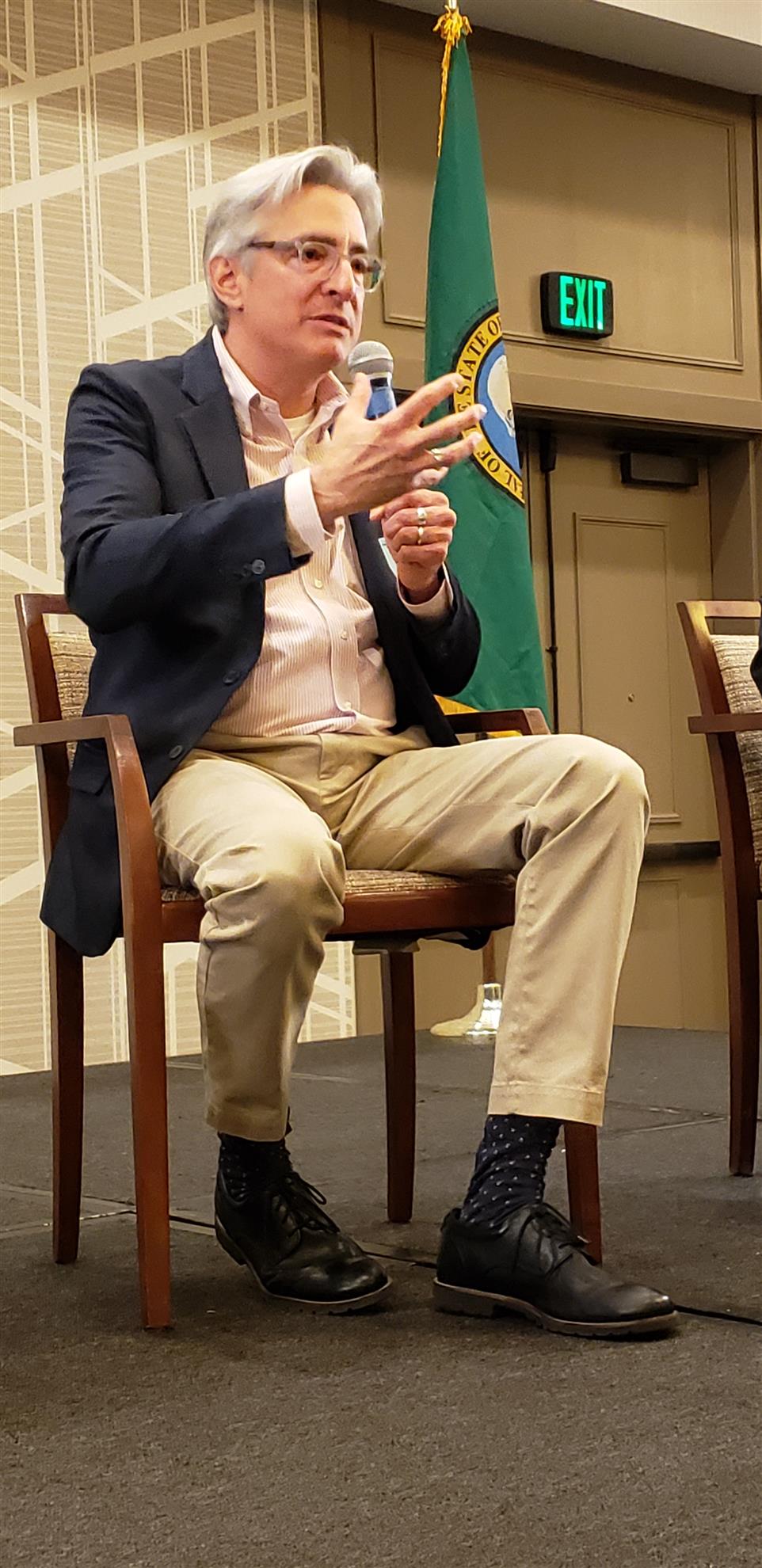 Rabbi Weiner then said technology is integrated into our society and unavoidable as the balance between liberty and security grows. He said Jewish people were victims of technology under the Nazi regime. Policy and process speak to thoughtful conversations about the use of this technology.
Rabbi Weiner then said technology is integrated into our society and unavoidable as the balance between liberty and security grows. He said Jewish people were victims of technology under the Nazi regime. Policy and process speak to thoughtful conversations about the use of this technology.The session ended with a call for a technology fairness bill or law that requires public agency vetting of the technology before it is used.
President Cindy opened the meeting with Don Murphy leading members in song with the National Anthem accompanied by Marli Iverson on the piano. They were followed by George Twiss, whose inspiration recognized the significance of Memorial Day, and as graduates begin a new chapter in their lives.
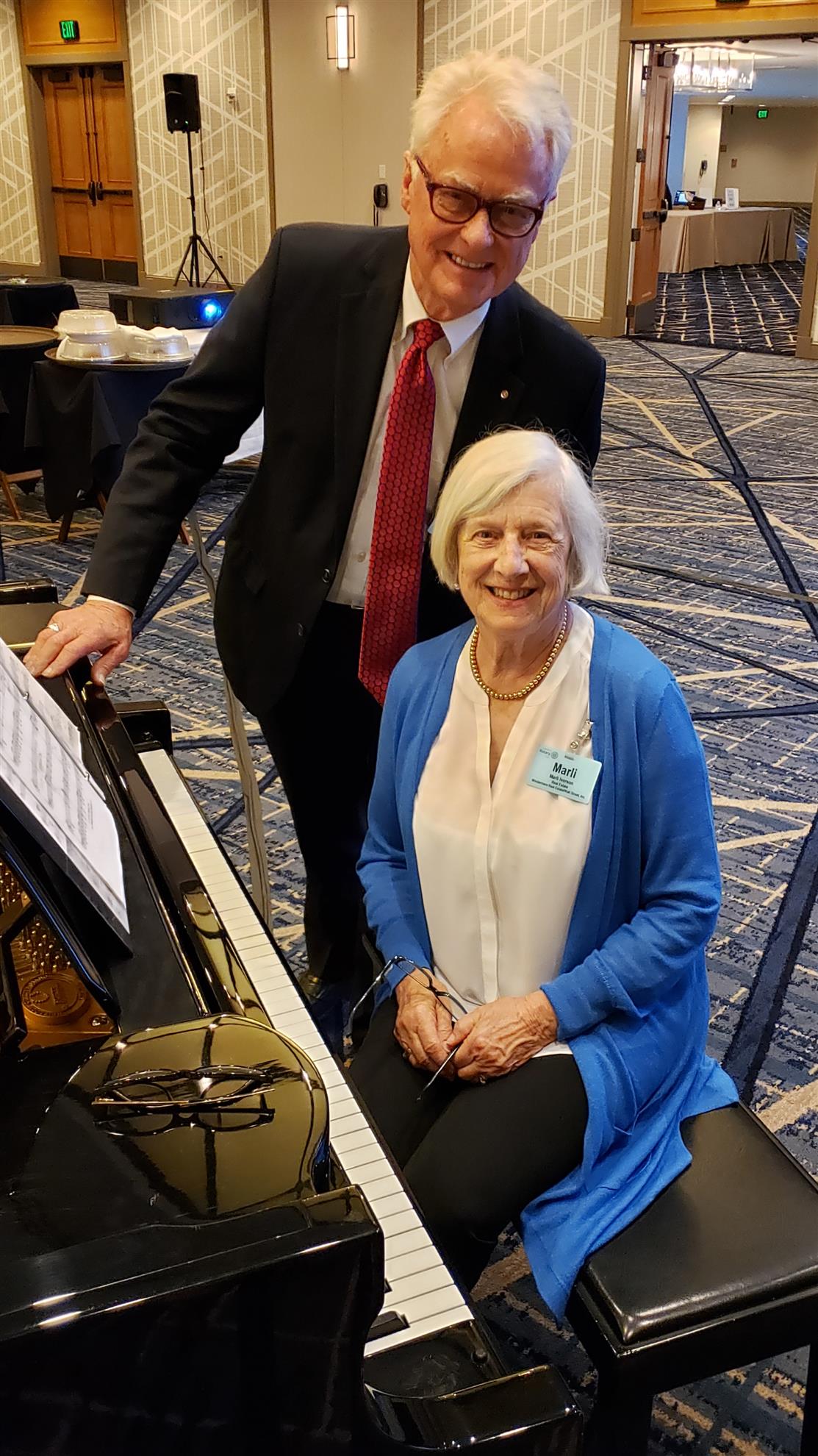 Lisa Mayfield asked Rotarians to recall the 100th Anniversary of Seattle #4, when Rotarians stepped up to donate $4 million to create the Rotary Support Center for Families at Wellspring Family Services. A tenth-anniversary party is planned on June 13 to acknowledge Rotary’s gift, inviting Rotarians to Wellspring Family Services on June 13, 5:00-7: 00 pm.
Lisa Mayfield asked Rotarians to recall the 100th Anniversary of Seattle #4, when Rotarians stepped up to donate $4 million to create the Rotary Support Center for Families at Wellspring Family Services. A tenth-anniversary party is planned on June 13 to acknowledge Rotary’s gift, inviting Rotarians to Wellspring Family Services on June 13, 5:00-7: 00 pm.
 Lisa Mayfield asked Rotarians to recall the 100th Anniversary of Seattle #4, when Rotarians stepped up to donate $4 million to create the Rotary Support Center for Families at Wellspring Family Services. A tenth-anniversary party is planned on June 13 to acknowledge Rotary’s gift, inviting Rotarians to Wellspring Family Services on June 13, 5:00-7: 00 pm.
Lisa Mayfield asked Rotarians to recall the 100th Anniversary of Seattle #4, when Rotarians stepped up to donate $4 million to create the Rotary Support Center for Families at Wellspring Family Services. A tenth-anniversary party is planned on June 13 to acknowledge Rotary’s gift, inviting Rotarians to Wellspring Family Services on June 13, 5:00-7: 00 pm.President Cindy reiterated our club’s guest participation policy that requires guests to be invited by a member along with visiting Rotarians checking in with the office. Our meetings are not open to the public.
.jpg) This week's Totem Report was written by Pete DeLaunay
This week's Totem Report was written by Pete DeLaunay